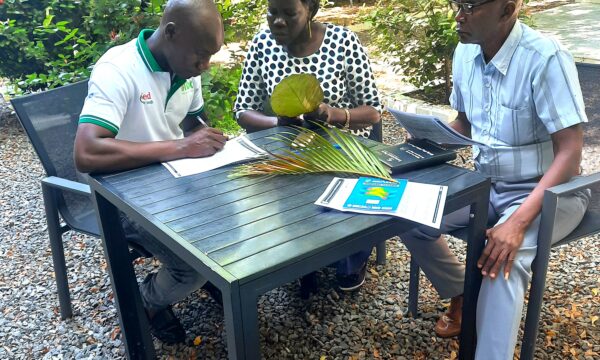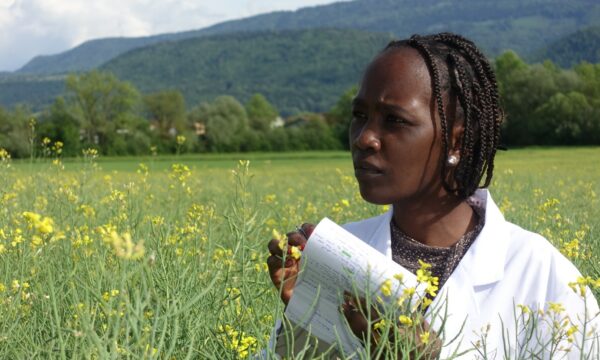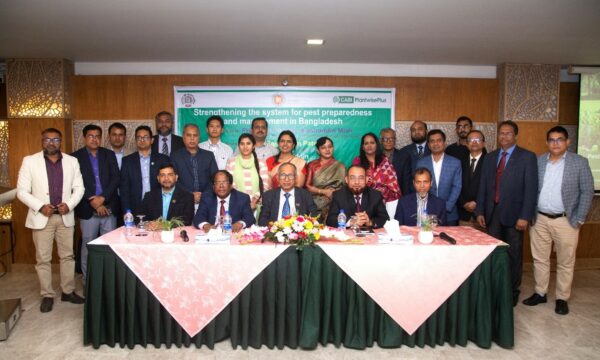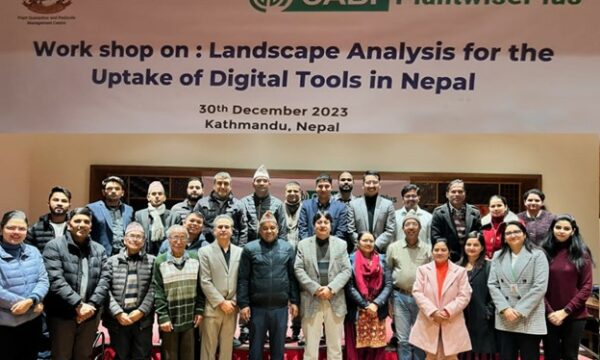
Unhealthy cassava leaves (© CABI)
The Bill and Melinda Gates Foundation has paired with the UK Government to award the Next Generation (NextGen) Cassava Breeding Project $35 million with the aim of promoting the growth of cassava crops and to improve food security in Sub-Saharan Africa.
Cassava is a major staple crop in Africa, with it being the primary source of calories for over 40% of the population, therefore protecting this crop market from future threats such as pests and diseases is increasingly important. Although these reasons, cassava is one of the least researched major crops in Africa.
NextGen Cassava was developed in 2012 with 11 partner institutions across three continents. The goal of the project is to improve cassava breeding via implementing a novel breeding method known as Genomic Selection, to increase growth cycles and improve information exchange between researchers and breeders.
Genomic selection is a novel type of predictive breeding in which statistical modelling is used to predict the performance of crops before they are field-tested. In conventional breeding of cassava, clones with desirable traits are singled out and bred. However, only 5-10 propagules are produced per plant, resulting in lengthy breeding cycles of up to 5 years. By shifting from phenotype-based selection to genotype selection, breeders can select desirable clones after only two years of cultivation with more accurate results.

Female cassava farmer selling crop on the roadside in Uganda (© CABI)
When the project was launched in 2012, the Foundation and UK Government provided $25 million in funding for the first five years of the project, consisting of project phase 1. During this period (2012-2017), NextGen developed an open-access database for cassava genetic information, this was the first time genomic data had been used for an under-researched crop.
NextGen project director Professor Chiedozie Egesi stated “Phase 2 of the project hopes to identify traits preferred by farmers and end-users and incorporate them into new cassava lines to ensure the varieties are responsive to people’s needs” and also deliver improved varieties to smallholder farmers.
For more information on NextGen Cassava and Genomic Selection (specifically implemented with cassava production) please see the links below:
Related News & Blogs
Empowering women farmers with digital tools in India
In India, 59 per cent of women work in agriculture. This workforce is vital to the country’s rural economy, with women performing many of the big farming jobs, such as planting, weeding, tending, and harvesting crops. Despite this, many…
8 March 2024




